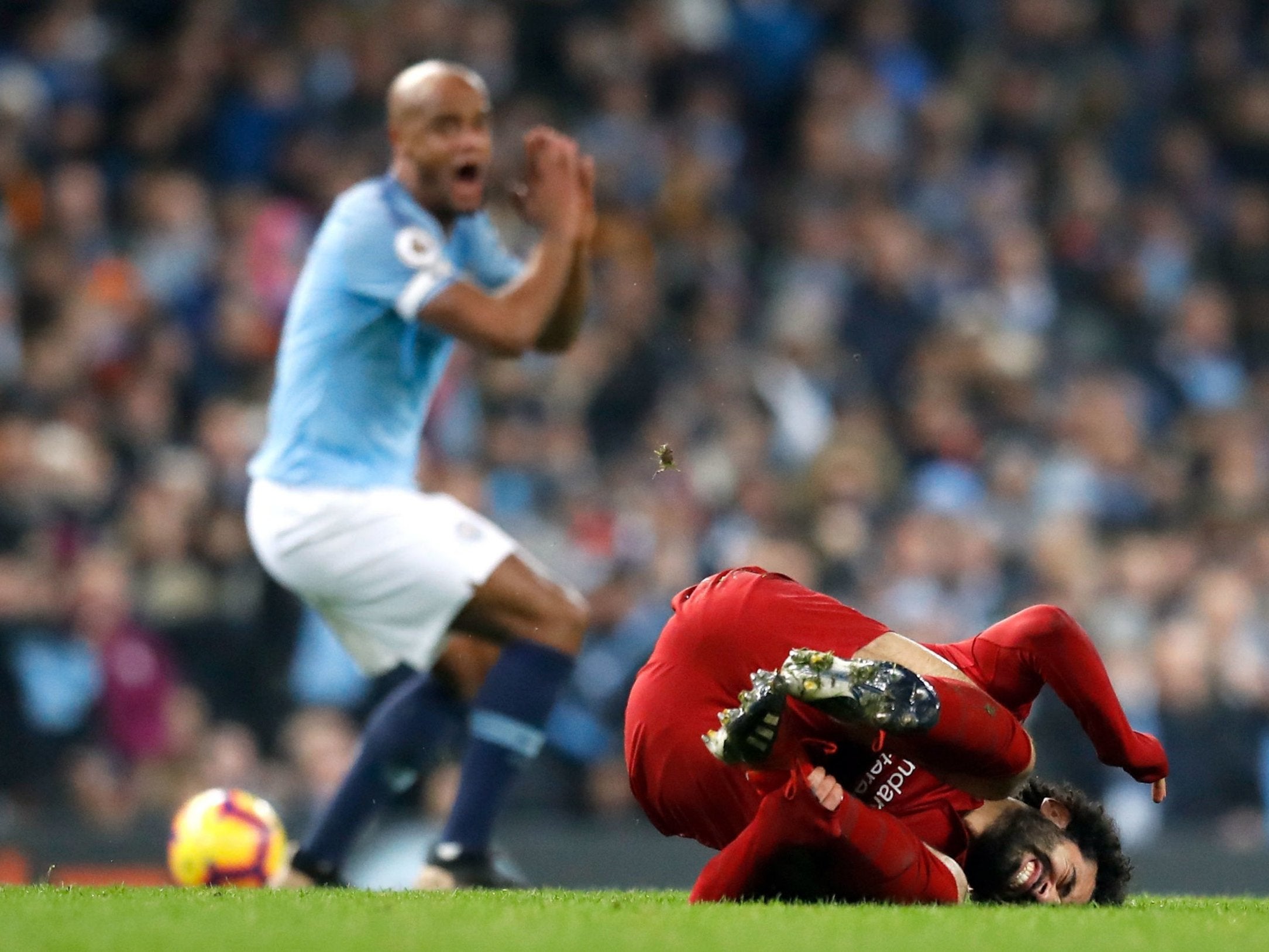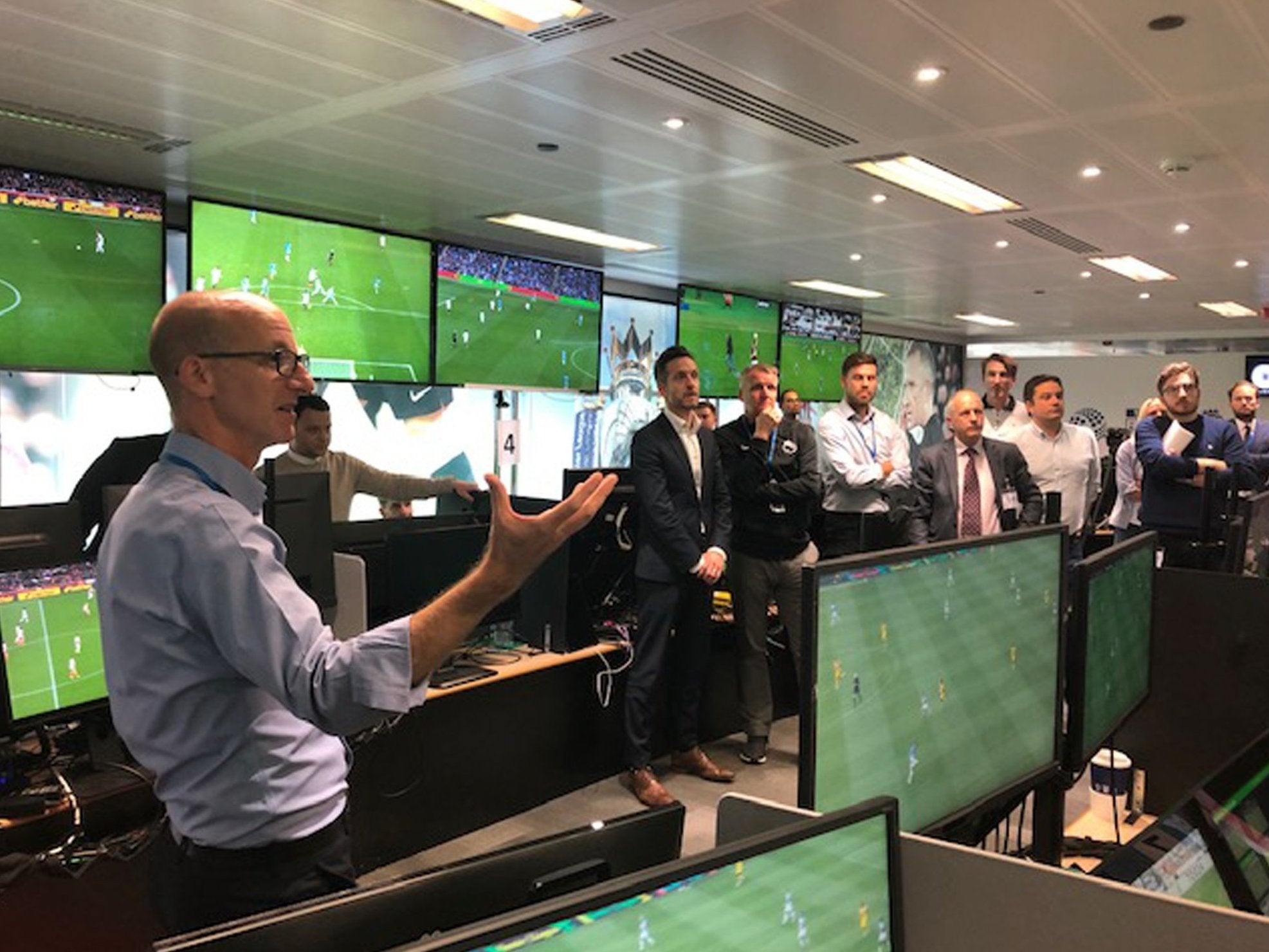VAR won't end controversy says referees chief Mike Riley
On Sunday video assistant referees will undertake their biggest dress rehearsal to date, with all 10 simultaneous Premier League matches to be monitored for trial purposes

As the Premier League braces itself for the introduction of video technology, referees' chief Mike Riley admits the system is not going to end controversy.
On Sunday video assistant referees will undertake their biggest dress rehearsal to date, with all 10 simultaneous Premier League matches to be monitored for trial purposes.
At a detailed VAR demonstration at Stockley Park, London, Professional Game Match Officials Limited boss Riley cited a challenge by Vincent Kompany on Mohamed Salah during Manchester City's 2-1 win over Liverpool in January.
Pundits and viewers were adamant Kompany should have been sent off, although referee Anthony Taylor only showed the City defender a yellow card.
The match was not under 'live' VAR jurisdiction but the system was being trialled, and Riley revealed that Taylor's decision would not have been overturned despite a "strong case for a red card".
That is because VARs will set a high bar for what is a 'clear and obvious error' by the on-field referee, and adhere to the system's principles of 'minimum interference, maximum benefit'.
Riley said: "The question you ask yourself isn't, 'what do I think is the right outcome?'. It's, 'has the on-field match referee made a clear and obvious error?'
"In real terms, in a live game, you'll have a referee describing what he has seen and explaining why he has come to that conclusion.
"The VAR uses that information and the pictures that he has, and puts it through the prism of, 'is that a clear and obvious error?'
"If it is, you upgrade the yellow to a red card. When we looked at this, we did not think it crossed that high bar, although if a red card had been issued you wouldn't have changed it."
VAR, used in some cup matches this season, did upgrade a yellow card to a red during Crystal Palace's FA Cup win over Grimsby when Andrew Fox was sent off for a high challenge on Andros Townsend.
The demonstration showed the extraordinary detail in which matches will be scrutinised.
The video referee has a screen with a live feed, and a screen below with a three-second delay, so any contentious incident can be instantly seen again.

Should it require closer attention, the VAR hits a green button to 'bookmark' the incident, so they can go back and check it when play stops.
Every single goal will be checked, 95 per cent of which will take around 20 seconds. Given the average time between a goal being scored and the restart is 62 seconds, those checks should have no effect on proceedings.
The average delay to play, when a more comprehensive review is required, is around 22 seconds. The longest delay so far was a Craig Bryson goal for Derby against Southampton, disallowed for offside, which took an arduous 118 seconds.

Riley admits the system is a learning curve for all concerned; referees have been retrained to delay blowing the whistle if an offside flag is raised, while players will be urged to play to the whistle.
Nothing will escape the VAR's attention. It transpired West Ham's Declan Rice could have been pulled up and shown a red card had a ball he threw at a pitch invader, in a Carabao Cup match against Tottenham, hit the fan. Luckily, for both concerned, he missed.
Players will also be reminded that gesturing to the referee, charades style, for VAR to be used, will earn a yellow card.
Join our commenting forum
Join thought-provoking conversations, follow other Independent readers and see their replies
Comments
Bookmark popover
Removed from bookmarks